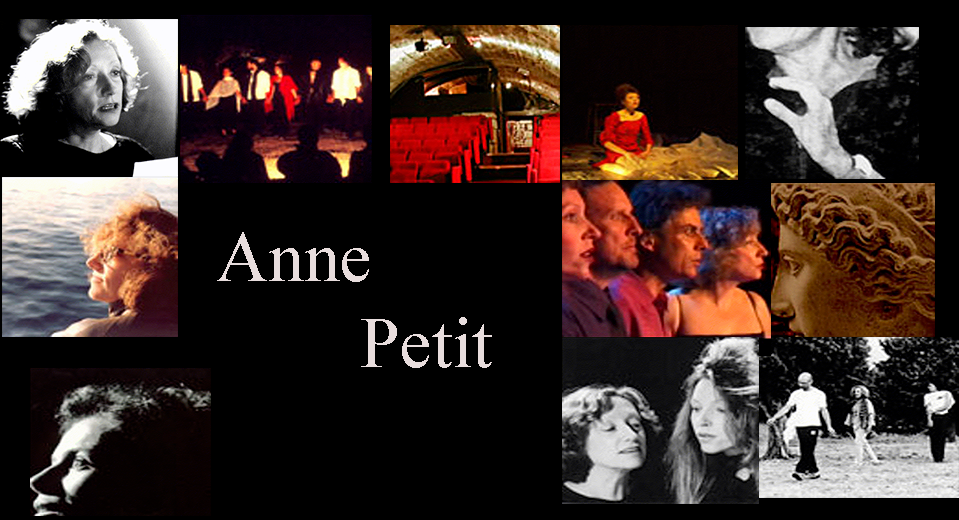
|
|
|
LUCIE OR THE FINE WORD OF THE STORY BY LUC TARTAR |
|
|
|
| |
|
|
| |
"... It flows along me, saltwater nets and torrents of tears which make my dikes crack, a disordered emotion digging my wrinkles and makes me old suddenly as if in that moment there was our whole story, Carl ..." |
|
| |
|
|
|
| |
|
|
| |
Lucie, on her wedding morning, lost in her lists, in the race against time for the wedding preparations, Lucie swoons, gets impassioned, liquefies before Carl, her fiancé she met at McDonald's. He came to kiss her at quarter to twelve, he won't come back at twenty past… Since then Lucie has been confused, no list can bring order back in this broken timeline.
Like Sisyphus she goes the whole way up to that day's twenty past twelve, over and over again...how long has she been doing this for? Luc Tartar has his very own way of talking about the popular Northern soil. His characters, like Lucie, go through life and its turmoil with no net, filled with the emotion of a powerful poetic urge to which all the keys are given to the audience by the author...
Lucie is alone on stage, in a space inhabited by the transfigured wedding dress... Carried away in the whirl of the author's both familiar and lyrical words, she addresses Carl. She gives herself away fully. Crazy moments when action bolts, violence, humour going up to the burlesque in the game with lists that escape, unfold, pile up and little by little reveal the traces of time's sedimentation.
Anne Petit
|
|
| |
|
|
|
|
|
| |
|
|
| |
|
|
| |
© Photos Stéphane Santini |
|
|
 |
|
| |
|
|
| |
Lucie loses control over the events and often over herself, she is beaten up by her emotions but faces adversity. I have much tenderness for this character who struggles in the middle of a nightmare. Lucie bears with her my other characters and all my predilection topics: life, death, memory, in short all the scars that others leave in us, the flaws in space and the wounds of time... I write a type of theatre which is neither realistic nor psychological. It is a theatre of nightmare, a theatre of catastrophe, in which language is in turn short sharp and outflowing, language of suffocation and language of scream, which mixes up lines, brief like knife blows, and parts in which pain unfurls.
Luc Tartar
"About the “cloud dress”, this “flown away soul”, suspended, stopped in its flight: this idea expresses the notion, not of fragmentation, rather that of separation. A violent separation of the “soul” and the “body”, of the dream of happiness and the reality of tragedy. A tragedy which Lucie refuses and rejects. So she looks for her love within herself but also in the ritual. The gesture ritual, the memory ritual, the planning ritual. She searches, rummages, scratches... And when she finds the slipcover in the debris, it is a corpse which she excavates and there, the “junction” she establishes with the cloud starts making sense and the disruptions of the ground, the turbulences of which she is both the author and the subject will show her despair as well as her strength..."
Kays Rostom (scenography notes)
Luc Tartar is a writer and an actor. He was a scholarship holder from the Ministry of Culture and the Centre National du Livre. He wrote for the theater including Les Arabes à Poitiers, La bonne Franquette, Terres Arables, Petites comédies de la vie, En voiture Simone, La Dame blanche, Papa Alzheimer, Estafette-AdieuBert(read at the Studio Theatre of the Comédie Française part of "First lines" March 2006). A plays compendium Parti chercher was published by Editions Lansman as Lucie or the find word of the story. He was associated during ten years (1996-2006)with the Theatre of Arras as an author. His first novel, Le marteau d'Alfred,was published by Editions de l'Amandier. |
|
| |
|
|
|
| |
|
|
|
| |
Direction Anne Petit. With : Talou Calvet. Set designer Kays Rostom, music by Ramon de Herrera, sax by Jean-Pierre Bariglioli(recorded music), costume EvelyneMoisson-Bonnevie, lighting Anne Petit, Kays Rostom. |
|
|
| |
|
|
|
| |
|
|
|
| |
|
|
|
|
| |
|
|
| |
Co-production T.A.T.-Théart', ECAM Theatre Le Kremlin-Bicêtre, with the support of"aide à la création" of Conseil Général du Val de Marne.
First produced on February 2006 ECAM Theatre in Le Kremlin-Bicêtre then Théâtre d'Arras on March 2006
|
 |
| |
|
|
|
|
|
 |
|
|